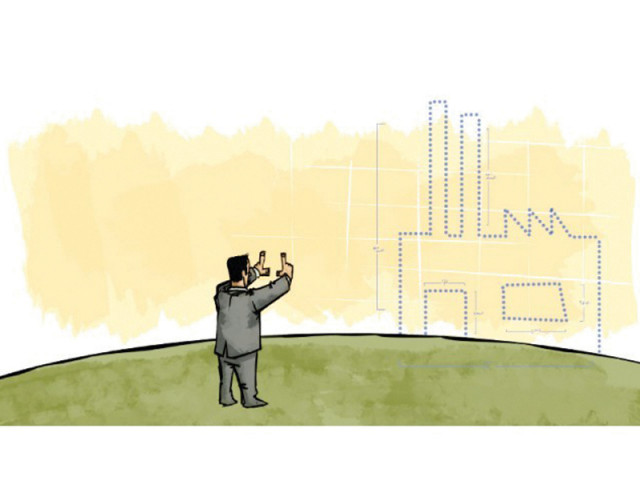In limbo: Gwadar oil refinery future uncertain
Pakistan refuses to offer Iran 25% return for setting up the refinery.

According to the original plan, Tehran was also interested in laying an oil pipeline from its territory to Gwadar to transport crude oil for processing. ILLUSTRATION: JAMAL KHURSHID
A multi-billion-dollar oil refinery planned to be built by Iran at Gwadar port is facing an uncertain fate as Pakistan government has refused to grant the same incentive to the refinery that was offered to Pak Arab Refinery Limited (Parco).
According to sources, the government had promised a 25% rate of return to Parco, jointly owned by the government of Pakistan and Abu Dhabi, at the time of commissioning the project and the incentive lasted for eight years. However, the same rate of return is not being offered to Iran.
Despite attempts to contact the petroleum secretary, he was not available for comments.
During the tenure of previous government, Iran had agreed to set up the country’s largest oil refinery at Gwadar port costing $4 billion and with a refining capacity of 400,000 barrels per day.

Iranian Oil Minister Rostam Ghasemi, during a trip to Islamabad in February this year, agreed with Pakistan authorities to build the refinery in a joint venture with oil marketing giant Pakistan State Oil (PSO). This was expected to not only meet Pakistan’s refining needs, but also open avenues for China to tap oil supplies.
The refinery was part of an oil complex being built by Iran at the Gwadar port. According to the original plan, Tehran was also interested in laying an oil pipeline from its territory to Gwadar to transport crude oil for processing.
According to a senior government official, China had also come up with a plan to construct oil and gas pipelines from Gwadar under the Pak-China Economic Corridor.

Beijing expressed interest in the oil pipeline under a programme to link Iran with China through oil and gas pipelines.
Earlier, China was interested in joining the Iran-Pakistan gas pipeline project, but did not push ahead with the plan following handover of Gwadar port operations to Singapore Port Authority, an official said. Now that Beijing has taken over control of the port, it is going ahead with different projects including oil and gas pipelines.
Former president Pervez Musharraf had also coined the idea of establishing a trade corridor to meet Beijing’s energy needs and offered help for constructing a strategic oil pipeline from Gwadar to China’s border.
Published in The Express Tribune, September 19th, 2013.
Like Business on Facebook, follow @TribuneBiz on Twitter to stay informed and join in the conversation.




1733130350-0/Untitled-design-(76)1733130350-0-208x130.webp)













COMMENTS
Comments are moderated and generally will be posted if they are on-topic and not abusive.
For more information, please see our Comments FAQ